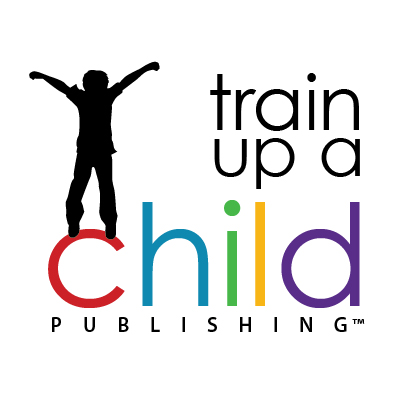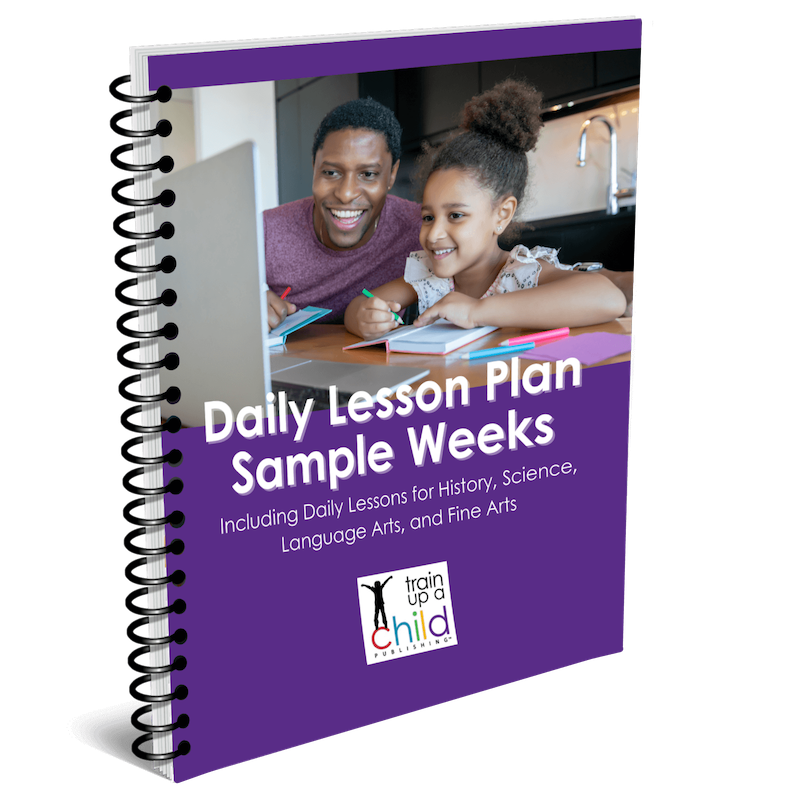Homeschooling on a Budget: 30+ Practical Tips for Thrifty Parents

If you’ve read my blog at all, you know that home-educating your children offers so many benefits over putting your kids into government schools. You have more time with your children and can mold their character, have flexibility in how and what you teach, and provide a personalized education at your children’s level. But let’s face it. Many, if not most, parents worry about the cost. After all, we are paying taxes for public schools as it is, and now we must pay to teach our children ourselves! In response to one of my reader’s questions, in this post, I’ll give you 30 practical tips for homeschooling on a budget, making your children’s home education both enriching and affordable.
Of course, even when you’re homeschooling on a budget, you still have to evaluate your bargains in light of their educational value and whether they align with your family’s values.
Editor’s Note: Many of our posts, including this one, have an affiliate link or two. If you buy something using one of our affiliate links, we might make a small commission at no extra cost to you. But a thousand thanks from me for supporting us in this way!
If you’re homeschooling on a budget, use a literature-based curriculum and make the library your new best friend.
Not only is a literature-based homeschool curriculum more budget-friendly, there are many reasons that to consider teaching with real books as a top option for homeschooling children. Public libraries are fantastic free resources for homeschooling families on a budget who are teaching using excellent children’s literature instead of textbooks. You can:
- Borrow hardcover and digital books, audiobooks, DVDs, and magazines on almost any subject. Additionally, using a reference librarian, you can request to borrow specific titles from anywhere in the U.S.!
- Ask your library what resources they have. In some libraries, you can borrow educational games and prints of paintings and often connect with e-learning resources.
- Find out when your library has story times for your littles, summer reading programs for all ages with prizes, summer movie matinees, and craft workshops for kids.
- Seek children’s librarians who can answer questions and help you find books that align with your children’s special interests.
- Instead of buying a kindergarten curriculum, check your library or pick up a used set or two of Bob Books and Dr. Ruth Beechick’s The Three R’s, covering reading, language arts, and arithmetic. (Now that’s homeschooling on a budget.) Note that these books aren’t workbooks or curricula. They teach you how to gently teach these subjects with your children in a developmentally appropriate way, along with ideas for simple, tried–and–true lessons. (A prolific author, Dr. Beechick taught Kindergarten through college and wrote many books to help homeschool parents.)
- Caution: Generally, when you use the Public Library, scan through books before bringing them home. A good option might be to read about and order books online at home and pick them up later.
Join a Homeschooling Support Group and Pool Your Resources
Connect with other homeschooling families in your community with similar family values and with children your children’s age. You benefit from having community with other homeschooled families, and your homeschooling support group can point you to inexpensive or free local resources.
- You can share teaching duties and expenses by pooling resources*, skills, and knowledge. Are you good at writing? You teach someone else’s child with one of yours while that child’s parent teaches both children math. This saves money on a possible outside class or needing to pay for a tutor.
- Your support group can be an excellent way to find used curriculum at a fraction of the cost of new.
- Support groups can organize group field trips, science experiments, art classes, yearly pictures, graduations, and more. All while keeping costs low.
- Especially if you have a group using a literature-based curriculum, you could borrow books from each other as needed to save money on purchasing books if they aren’t in your public library.
- Ask others if they go to a larger church that has its own library. In my experience, churches are happy to give community members library cards, whether or not they attend there.
*Note that Homeschool Curricula Publishers generally have copyright policies that don’t allow you to share your purchased curricula with others. In other words, curricula is licensed for just one family. However, it’s almost always okay to sell used tangible (not digital) curriculum to someone else at a reduced price!
Use a more unstructured curriculum that makes it easy to home-educate your children together for some subjects.
- Use a unit study curriculum that allows all of your children to study history, geography, and science (K-8) together at the same time, but each at their own level.
- If you have children that are close in age and ability, you can also teach them skill-based subjects together, such as Math or Language Arts.
- If you’re willing to roll up your sleeves and do some of the planning yourself, a more unstructured curriculum can be significantly more budget-friendly than a grade-level, open-and-go curriculum option.
If you’re homeschooling on a Budget, Buy Discounted Curriculum and Supplies
Purchasing new curricula and supplies can be expensive, as I’m sure you know.
- Ask if your favorite curriculum publishers offer discounts for a pastor’s family, military personnel, police officer’s family, or missionary families.
- Check with them on unsellable “scratch and dent” items, often offered with deep discounts.
- Have your homeschool support group host a used curriculum sale or travel to other local sales.
- Take advantage of special sales at typical times – Back to School, Black Friday, etc. (You can also ask your favorite publishers if and when they are having a sale.)
- Check with longtime homeschool parents who are nearly finished with their homeschool careers – they often have a bonanza of books, curricula, and supplies and may be happy to give them to you if you’re willing to come to pick them up.
Take advantage of local and internet resources for homeschooling opportunities on a budget.
Look for materials from online marketplaces, bundle sales, thrift stores, or homeschooling forums.
- Take advantage of bundle sales that sell excellent curricula at 95% or more off the regular cost. This saves you LOTS of moolah and is a valuable way to sample curricula from publishers you may not have seen before. One of my favorite homeschool curriculum bundle sellers is Homeschool Resources Co. It’s run by Christian homeschool moms like you, who have sales throughout the year. Don’t go wild with these, but don’t avoid them, either!
- Use inexpensive homeschooling tools to enhance any curriculum and subject – such as NotebookingPages.com —perfect for literature-based studies. These pages are especially helpful if you have reluctant writers. It’s tons easier for your children to write when they see writing prompts on a page instead of a blank page. Try it! You’ll be amazed.
- Explore free or low-cost resources within your community. Museums, zoos, botanical gardens, historical sites, and other public places often offer local residents free days or discounted admission and often include teaching materials to enhance your visit!
- Ask businesses to offer discounted martial arts or other classes to your group of homeschooled children who are available in the morning when other children are at school.
Utilize Free Online Resources
The internet is a treasure trove of free educational materials. Again, you must be discerning about what you use: free isn’t always best and doesn’t always jive with your values.
- Look for websites from publishers you trust offering free lesson plans, educational games, or puzzles.
- Many famous museums all over the world offer free virtual field trips! (There are many on this list — again, do your due diligence and look first.)
- Many curriculum publishers offer generous samples on their websites, which might get you started planning your own lessons.
- Online learning opportunities like Khan Academy, Coursera, and many other platforms offer various subjects and grade levels at no cost. Again, don’t sit your student of any age at one of these websites without carefully looking it over first. Our current cultural norms are creeping into some of these educational venues, just like everywhere else.
Think more broadly than just academics – give your children budget-friendly life skills and experiences.
- A large part of home education is training children to have good habits and life skills.
- Life skills could include meal planning and preparation, budgeting, paying bills and balancing a checkbook, changing the oil in the car, taking care of animals, being a mother’s helper for another family, teaching Sunday School or Vacation Bible School, basic car or home repairs, gardening… everything parents have to do is fair game!
- Does your child naturally lean toward art, music, woodworking, or other special areas? Do you know an adult who has a similar skill and wouldn’t mind a “helper” on a regular basis?
- Consider field trips to farms, water treatment plants, recycling centers, the post office, and factories, which often offer free tours. Would they consider hosting your children or a group of home-educated children?
- Does anyone you know work as a firefighter, police officer, attorney, or in a public service area? Could your older student “interview” and/or shadow them for a day? What about someone who worked in the Space Program or another specialized job? Would they come and talk to your group about their experiences?
Homeschooling on a budget is possible and well worth the work of searching for excellent curricula and resources at a reasonable price. By searching for low-cost resources, joining homeschooling support groups, and being creative with educational activities, you can provide top-quality education for your children without breaking the bank. Remember, the key is to be resourceful, open to new ideas, and committed to nurturing your children’s love for learning. Happy homeschooling!
If you have home-educating friends who would benefit from learning how to Homeschool on a Budget, will you help them out by sharing this post using the sharing buttons below my signature? Many thanks!
Happy Homeschooling!



